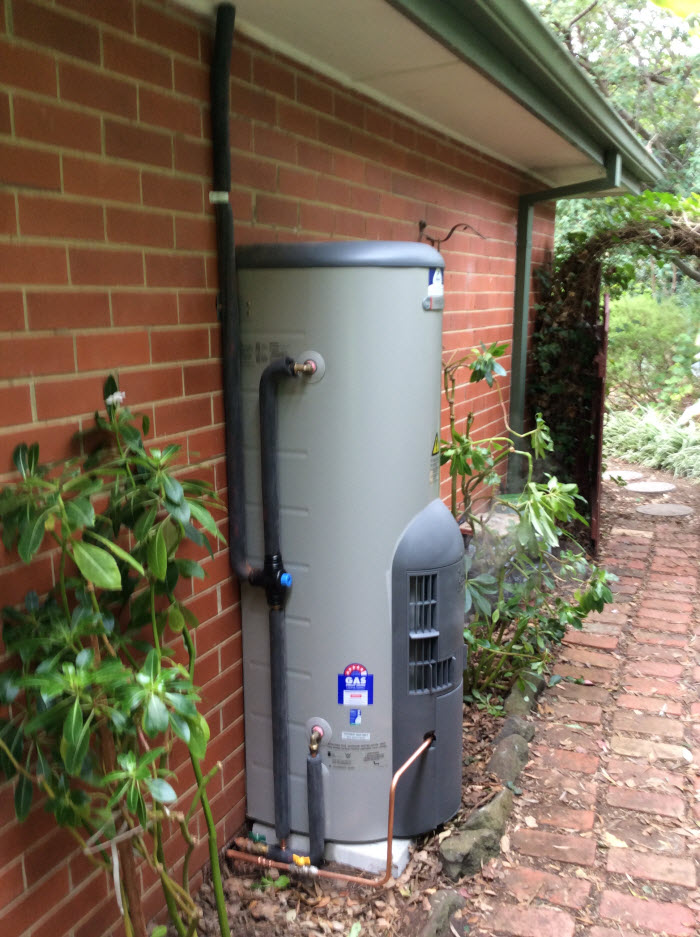7 Signs your Hot Water System Needs Replacing
What are the signs to replace your hot water system? Is it a repair or complete replacement that’s needed? Is the hot water system one more cold shower away from a complete breakdown? Don’t wait for the cold shower, get it replaced before then and avoid a cold rinse! Hot water systems usually go unnoticed until something goes wrong. Before your hot water unit breaks down, there are some signs to look for that means you can replace them before they stop working. know when to replace them.
1. The Age of the System
How old is your hot water unit? It goes to reason the older the hot water until the closer it is to needing replacement. A typical water heater system should be in operation for about 8-12 years; this is mainly dependent on its maintenance. (We recommend an annual service to extend the life of the hot water unit.). Knowing its age will help you to estimate when to replace it. If it is hitting the ten-year mark, do not wait until it completely goes on a complete breakdown. This is the best time to replace it. But if it’s the hot water system at your holiday home that’s used less often the ten-year rule might not apply. That’s why at least every couple of years have the hot water serviced so it can be in the best shape and last longer. Not to forget, the number of uses can also affect the lifespan of the water heater system.
2. When the Tank is Leaking
If your water heating system is leaking, this indicates an issue. This is one of the major snags with the water heating units. If there is some evident leakage coming from the water heater, or you observe some standing water around the device, then these are signs that it requires attention immediately. A leaking tank may require a full replacement and not some repairs, again the age and condition of the unit come into play. A small leak on a 5-year-old system is much less worrisome than a big leak in a 20-year-old hot water unit. The small leak can often be repaired on a newer system, but the older system with a larger leak often needs complete replacement.
3. The Temperature of the Water

A thermostat will regulate the temperature of water from the heater. A typical working hot water heater will deliver hot water depending on how the thermostat is set. If the unit changes the temperature of water from hot to cold, or even hotter, it is not running the right way. If this happens, try to adjust the thermostat; if no change occurs, the system needs a plumber to look at it. We will look at factors like the age, condition and the units ability to provide continuous hot water to more than one source at a time. For example, supplying two showers with sufficient hot water at the same time. Often an issue for families, this might be a good reason to replace it and get the one with a larger capacity to handle your population. The unit producing water at varying temperatures is a risky one and should not be taken lightly.
4. Rusty and corroded inner water tank
Rusting and corrosion is a common thing in hot water tanks. This is usually a sign that your system’s lifespan is almost over. There are ways to check for a rusty water tank. One is to check the water supplied by the water heater; if it appears rusty, the tank is rusting. The other way is to manually check the tank; you will observe rusty walls. This is an indication that the unit needs a replacement. It is also essential to check whether the rust is coming from the galvanized piping system before concluding that the rust is emanating from the tank. This is something we check when servicing the units and another reason regular services are important.
5. Hot Water Unit is Noisy
After a time, the water heating unit might start making some noise, especially when operating. The banging and the rumbling you hear coming from the water heater is a sign that the unit needs a plumber. The noise it produces is an upshot of the sediments that piles up in the tank. After they are heated, they produce the banging and rumbling noise you get. Apart from the noise, the sediments corrode the heating unit fashioning a layer on it hence posing difficulties for the unit to work well. At this point, it may be beyond repair.
6. Faulty Drain Valve
The hot water system tank will collect sediments and silt with time. The sediments may break into the tank’s interior, making the drain valve blocked. This prevents the water from flowing out. We will try to flush out water before and prevent the drain valve from becoming clogged which leads to leaks. As mentioned again it will come down to overall condition and age of the unit. We can fix this but if it’s an older unit it may just keep happening causing more repairs and it is probably more cost-efficient in the long run for a new system. And a new system will also be more energy-efficient saving on bills.
7. Increased Demand for Hot Water Supply
A specific hot water system is designed to serve a specific number of people in a household at any given time. If the number of people in the house increases, it means that the hot water system will not work efficiently. The size of your water heating unit needs to be the right size for your household. If the unit is aged and over ten years plus not working well enough for the entire household – for example, water pressure changes when more than one person using hot water, or even worse suddenly having the shower turn cold because the hot water has run out, then it’s a sign to replace the entire system.




